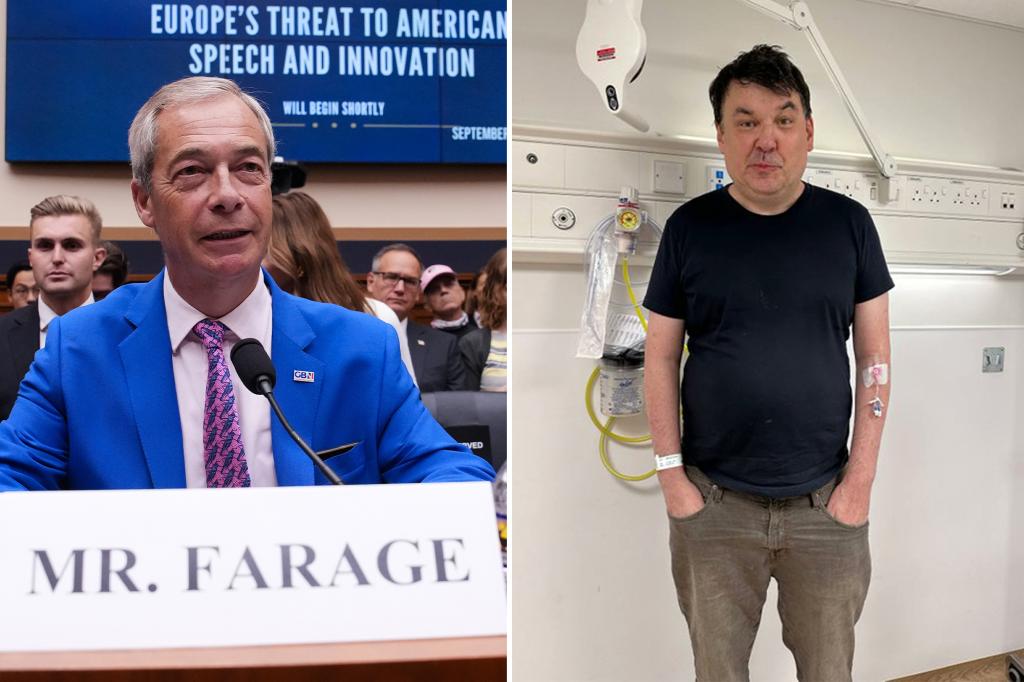The Perilous State of Free Speech in the UK: A Warning to America
In a compelling testimony before the House Judiciary Committee in Washington, D.C., British politician Nigel Farage issued a stark warning to Americans about the deteriorating state of free speech in the United Kingdom. Speaking with evident concern, Farage painted a troubling picture of a nation where citizens and visitors alike can face arrest simply for their social media posts. “At what point did we become North Korea?” he questioned, referencing the recent arrest of Irish comedian Graham Linehan at Heathrow Airport for his controversial posts on X (formerly Twitter). The incident highlighted what Farage described as a “genuinely worrying, concerning, and shocking situation” that could potentially affect Americans traveling to the UK. Linehan, an Irish citizen, was detained for three separate posts, including one in which he joked about confronting “trans-identified males” in female-only spaces. This case exemplifies the expanding reach of British speech restrictions, which now extend beyond national borders to affect international visitors expressing views that might run counter to current UK sensibilities.
The hearing, titled “Europe’s Threat to American Speech and Innovation,” provided a platform for Farage to elaborate on what he termed an “awful, authoritarian situation” created by online speech laws in the UK and Europe. As a member of the British Parliament and leader of the right-wing Reform Party, Farage shared numerous instances of British citizens being arrested and even incarcerated for their social media expressions. The Online Safety Act, which recently went into effect in the UK, ostensibly aims to protect children from harmful content but has raised significant concerns about government overreach. Reform Party member Zia Yusuf has criticized the legislation as being written broadly enough to allow the government to dictate “what speech social media companies must censor,” describing it as dystopian in nature. Farage has pledged to repeal this act if his party wins in the next election, highlighting the contentious nature of speech regulation in British politics.
Unlike the United States, free speech in the United Kingdom is not an absolute right. The Human Rights Act of 1998, which Farage opposes, along with other laws, prohibits so-called “hate speech” and expressions that defame, threaten, or incite violence. This fundamental difference in legal frameworks creates potential pitfalls for Americans accustomed to First Amendment protections when they travel to or interact online with the UK. Farage warned that these restrictive speech laws could also “damage trade between our countries,” suggesting economic implications beyond the civil liberties concerns. This testimony comes in the context of previous Republican-led investigations into the policing of “misinformation” and “disinformation” that allegedly resulted in the censorship of The New York Post’s reporting on Hunter Biden’s laptop by major technology platforms during the 2020 election cycle.
The hearing quickly revealed deep partisan divisions on the issue of international free speech protections. Representative Jim Jordan, Republican Chairman of the Judiciary Committee, invited Farage to testify as American lawmakers consider legislation to protect U.S. citizens from foreign speech restrictions. In stark contrast, the committee’s ranking Democrat, Representative Jamie Raskin of Maryland, vehemently criticized both the hearing and Farage himself. Raskin declared that there was “no free speech crisis in Britain” and characterized Farage as someone who “seems most at home with the autocrats and dictators of the world who are crushing freedom on Earth,” referencing television appearances in which Farage allegedly praised Russian President Vladimir Putin. Raskin dismissed the entire proceeding as “a drive-by hit against a strong democratic ally to benefit a Donald Trump sycophant and wannabe.”
Despite the hostile reception from some committee members, Farage maintained his composure, acknowledging Raskin’s criticism with a measure of ironic appreciation. “I’m delighted to reacquaint with the charming Mr. Raskin,” he responded, referencing a previous encounter in London where he had reportedly called the Democrat “the most pig-headed person he’d ever met.” With characteristic resilience, Farage added, “Delightful testimony you gave me earlier on with your speech. But hey, that’s fine, you can say what you like, I don’t care. Because that’s what free speech is.” This exchange itself served as a vivid demonstration of the contrasting attitudes toward free expression at the heart of the debate, with Farage embodying the principle that robust disagreement is essential to democratic discourse.
The testimony highlighted a philosophical divergence that extends beyond partisan politics to fundamental questions about the nature and limits of free expression in democratic societies. “This has all been going wrong now for a couple of decades,” Farage observed, suggesting that the erosion of speech protections represents a longer-term trend rather than a recent development. He invoked Voltairean principles, referencing the famous (though misattributed) quote about defending to the death someone’s right to express opinions with which one fundamentally disagrees. This appeal to classical liberal values underscored Farage’s argument that modern speech restrictions, however well-intentioned, represent a dangerous departure from foundational Western principles. As the global debate over free speech, content moderation, and the role of government in regulating expression continues to evolve, this hearing served as a reminder of the significant differences in approach between traditional allies and the potential consequences these differences might hold for international relations, trade, and individual liberties in an interconnected world.


